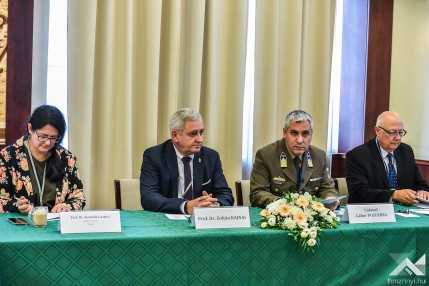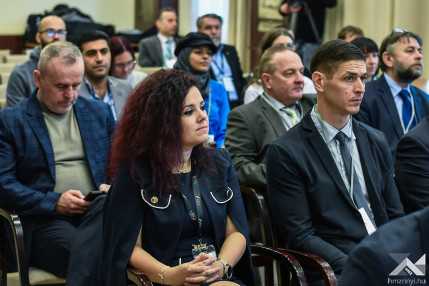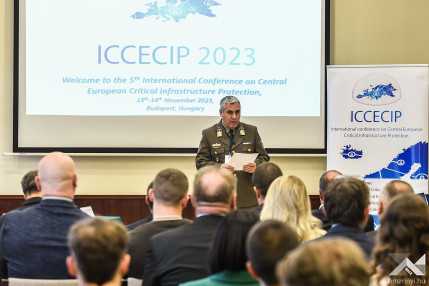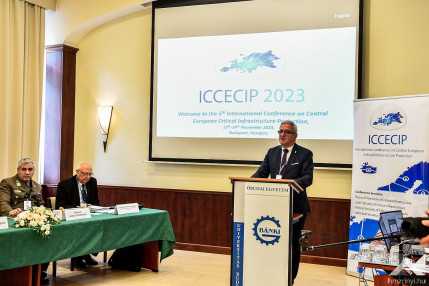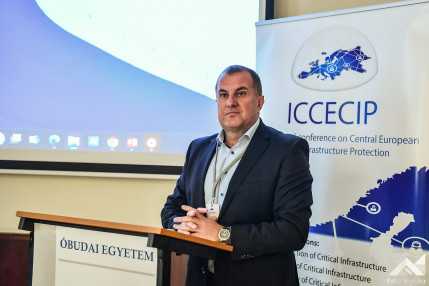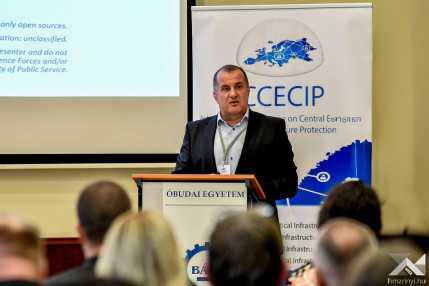Critical Infrastructure Protection with military aid
Text: Vendel Teszler | Photo: Tünde Rácz | 09:47 November 16, 2023There can be no national cyber security strategy without military cyber security strategy – this was stated at the 5th International Conference on Central European Critical Infrastructure Protection (ICCECIP) in Budapest. On 13 and 14 November, scientific professionals from ten countries were discussing current issues in their field of specialization during the event co-organized by the Óbuda University Bánki Donát Faculty of Mechanical and Safety Engineering and the Hungarian Defence Forces Cyber Operations Command (HDF COC).
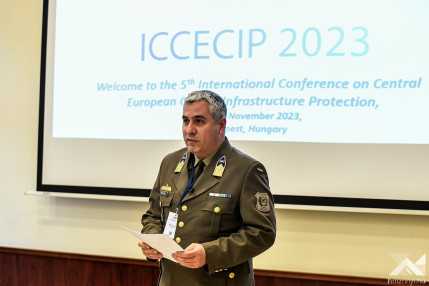
“The motto of this year’s ICCECIP is »The impact of the energy dependency on critical infrastructure protection«, which is a quite topical issue in the era of hybrid warfare”, said Colonel Gábor Pozderka, Commander, HDF Cyber Operations Command at the opening ceremony of the event. This year for the first time, the organization under his command joined the conference – which is already organized on the fifth occasion – as one of its co-organizers.
Joining is timely, since – as Colonel Pozderka put it – the energy sector is key to the economy and to people’s everyday life. However, the number of attacks in cyberspace – which is playing an increasingly crucial role in relation to mankind – is going up at an alarming pace. These attacks are aimed at paralyzing and temporarily knocking out the critical infrastructure of a given country; above all, the infrastructure of service providers with high volumes of energy, cyberspace and internet consumption and a huge number of clients.
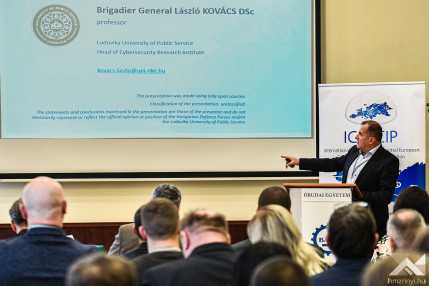
The militaries of the given states can also do a lot for the protection of those infrastructures that are indispensable and so critical for the fulfilment of daily vital needs, and they intend to do so indeed. In his presentation about the topic, the first lecturer of the conference, Brigadier General Prof. László Kovács DSc, Scientific Vice-Rector at Ludovika University of Public Service examined the question of how the military can contribute to civil protection. In his opinion, it can contribute a lot, as national cyber security is based on military cyber security, and so there can be no national cyber security strategy without a military one.
His words could not have been more timely than now, at a time when the multinational countrywide Exercise Adaptive Hussars 2023 is being conducted. This is because one main objective of the largest-scale domestic military maneuvers in the last 30 years is to ensure that the Hungarian Defence Forces, in cooperation with civil administration, can carry out, among others, the civil protection tasks of the training event while preparing for potential future scenarios.
On behalf of the Óbuda University, Prof. Zoltán Rajnai PhD, Dean of Bánki Donát Faculty of Mechanical and Safety Engineering welcomed the conference guests, for whom altogether 66 lectures will be delivered in two days at the sections of conference sessions addressing the physical, political, cyber and individual security aspects of critical infrastructure protection, and in the framework of plenary lectures.
